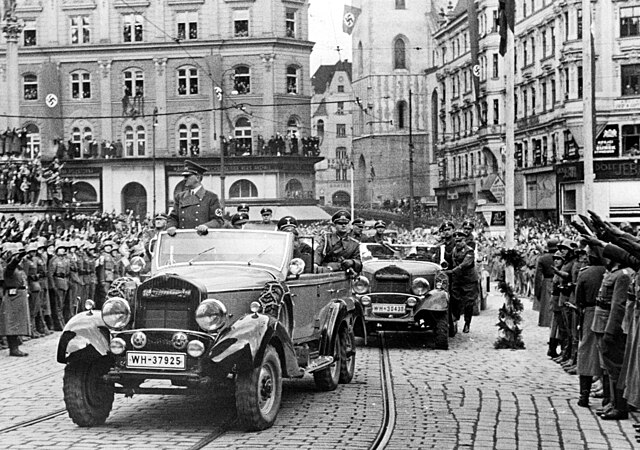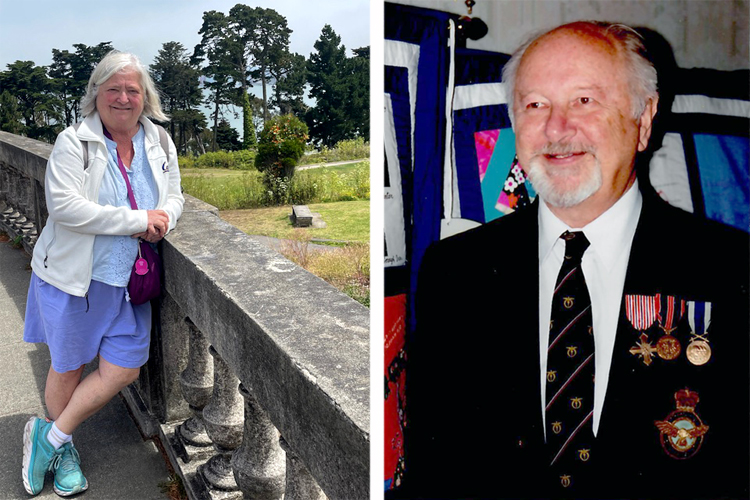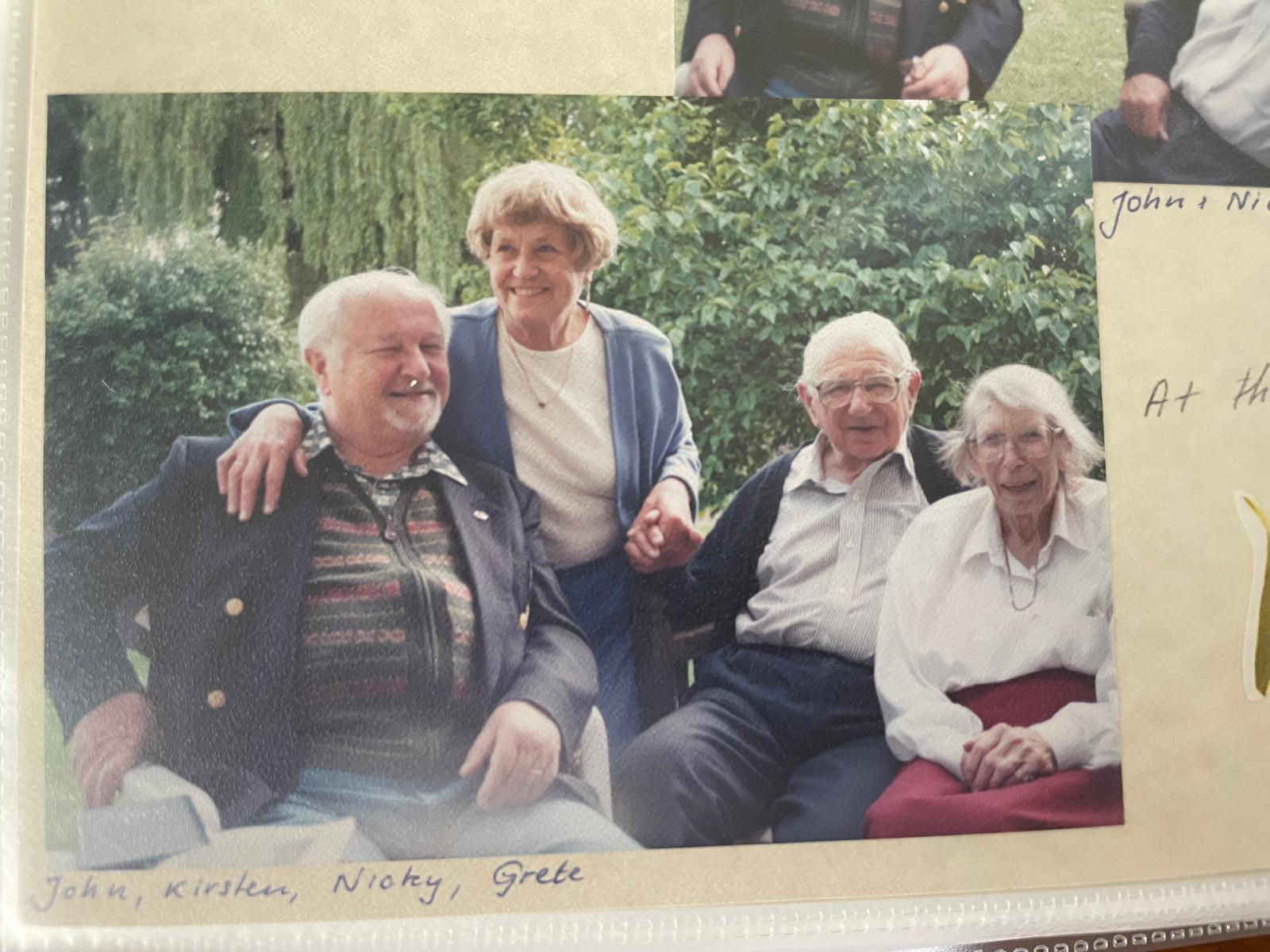

05:00AM, Friday 04 July 2025

The last photograph of the Grosz family.
Hanus Jari Grosz and his brother Karel were just boys when they were hurried out of Nazi occupied Czechoslovakia on a Kindertransport train organised by Sir Nicholas Winton.
When their steam engine chugged away from a crowded platform in Prague one morning in 1939, the youngsters, 14 and 13, both Jewish, escaped almost certain death.
It was a journey into the unknown – the last time they would see parents Emil and Irma – but it was also a journey to safety in the United Kingdom.
Last photographs
The shadow of Nazism crept closer ever closer to Czechoslovakia and Brno, the Grosz home city, in the late 1930s. Word of the regime’s persecution of Jews spread with it.
“My father didn’t really talk about it – he kind of blocked it out,” Hanus’ daughter, Anita Grosz said. “My uncle talked about it more.”
Ms Grosz said: “People were visiting from Vienna in Austria.
“People who had been incarcerated and then released, so they [the Grosz family] were aware of the brutality of the Nazis.
“Then in Brno - there was actually a Kristallnacht - there were fires and they destroyed Jewish cafes.”
Kristallnacht was a night of mass violence against Jewish people living in Nazi occupied territories in November 1938.
“People were aware, especially in the Jewish communities,” Ms Grosz said.
“My grandparents immediately took the boys to get a photograph and get a passport because you had to have a passport to leave.
“A lot of people have these last photographs of the families, which is very sad because a lot of the parents didn’t survive.
“They didn’t have the time to get out.”

Adolf Hilter and a Nazi motorcade in Brno, 1939 (image: Wikimedia Commons).
Survival against the odds
Kindertransport trains began evacuating children from Austria and Germany in late 1938, but nothing was yet taking place in Czechoslovakia.
Sir Nicholas visited the country that December. What he saw sparked his conviction to help rescue the many children left stranded and in perilous danger.
An enormous effort began: finding sponsors and funding for evacuees, negotiating visas with the UK Home Office, organising transport for hundreds of children.
Fear and panic descended on Jewish communities in Czechoslovakia when the Nazis seized control of the country in March 1939, the same month the first Kindertransport left Prague.
Emil and Irma tried desperately to find a sponsor for their boys’ journey. Anita credits sponsor Lilian Bowes-Lyon, along with Sir Nicholas, for saving their lives.
The boys were evacuated in the early hours of April 18, on one of the eight successful rescue trains from Prague. The journey took them eventually to a farm in rural Oxfordshire.
After the war, the boys discovered their parents had been unable to escape the Nazis.
Emil died at Terezín concentration camp, and Irma at Auschwitz.
A ninth Kindertransport train carrying 250 children was stopped before it could leave Prague on the day war broke out on September 1.
It is believed that almost all those children also died at Nazi concentration camps.
‘A monumental reunion’
Hanus had never met the man who helped save him and his brother until he was finally introduced at a Kindertransport survivors reunion in London in 1989.
“For a lot of people, that was kind of putting in place at least the start of their journey to understand how they came to get out of the country,” Ms Grosz said.
“They knew their personal stories, but maybe it didn’t make sense how they all got out together.
“When he [Hanus] met Nicky, it was monumental.”
Hanus remained friends with Sir Nicholas until his death in 2001. The Wintons would visit the Grosz family in Indiana, America, where they had emigrated to.
Karel lived in the UK for the rest of his life. He married and had three children with Eva, a concentration camp survivor from the Grosz’ hometown of Brno. He died in 1998.
Anita, 69, who moved to the UK in the 1990s, also became friends with Sir Nicholas.

Anita Grosz and her father Hanus
‘What Sir Nicholas represents’
A total of 669 children were rescued by the Czechoslovakian Kindertransport.
Thousands more are alive today because of it.
“I have to stand up for him because, but for what he did – I wouldn’t be here,” Ms Grosz said.
Asked whether Sir Nicholas was ‘a hero’, she added: “I think he’s the kind of hero we need.
“He did it purely because the need was there and he felt he had the capacity to do something.
“He used to always say, ‘we have to be prepared to take action when the occasion arises’.
“When you see real heroes, you see people who take action when it’s needed. It’s only because they’re recognised that they become heroes.
“Actually, what they do, something that should be held up to - what Nicky represents – is we need to take action, take capacity and not be bystanders.”

Hanus, Nick named 'John', his wife Kirsten with Sir Nicholas Winton and his wife Grete.
Most read
Top Articles
The owners of a Queen Street restaurant are content with being the inconspicuous hidden gem of Maidenhead, despite the numerous accolades bestowed upon it since opening five years ago.
Businesses in Maidenhead's Nicholsons Centre have started moving out ahead of the centre's scheduled closure in the summer.
The Marks & Spencer store in Maidenhead High Street could be redeveloped into a ‘mixed-use’ scheme once the retailer leaves, planning documents have suggested.